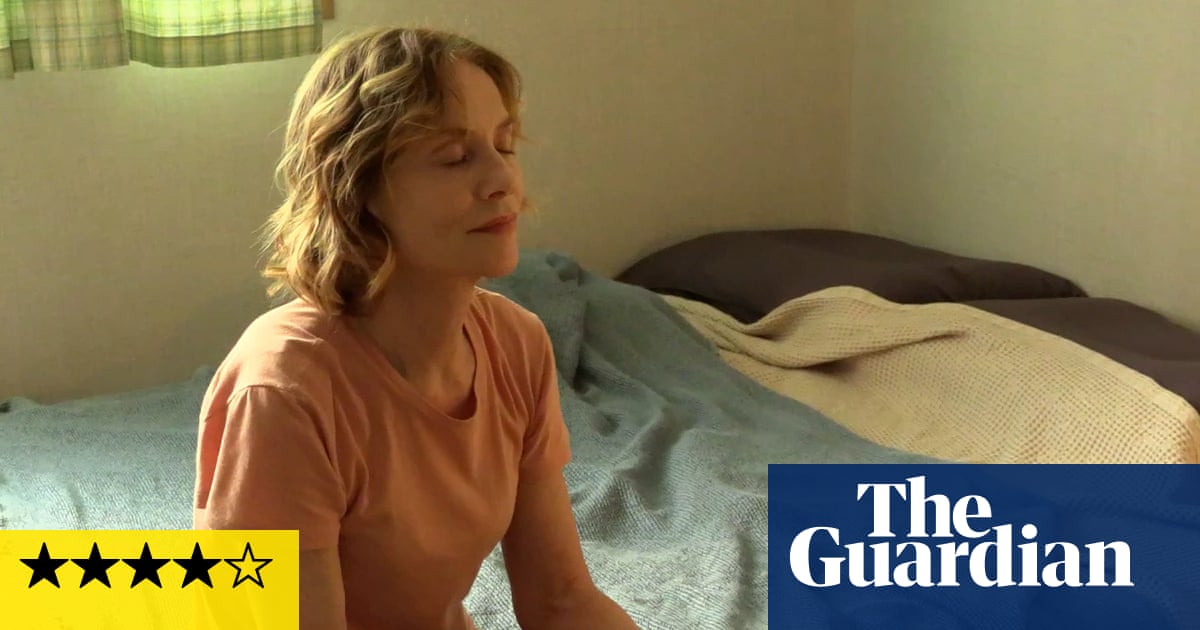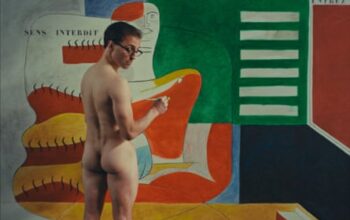
Here is another deadpan comedy of manners from the prolific Korean auteur Hong Sang-soo: unworldly, gentle and effortlessly minimalist as always, and it is his third film starring Isabelle Huppert. She adds a distinctive level of mystery to this deceptively simple film, conducted (as ever with Hong) at walking pace, with extended and unhurried dialogue scenes, featuring people incautiously drinking alcohol in the middle of the day, in this case Korean makgeolli, a milky rice wine which Huppert’s character coolly declares to be “mild”. There are a couple of Hong’s sudden signature zooms, homing in on things that on the face of it don’t appear to be funny or dramatic. You can spend the entire film wondering if you have properly understood the joke, or if it is a joke (surely the scene in which Huppert plays the recorder very badly is supposed to be funny?). But it is hypnotically watchable.
A modestly dressed French woman called Iris, played by Huppert, is apparently making a living in Korea giving French lessons according to a strange procedure of her own. She conducts long conversations in English with the student, then writes a brief summary in French of the resulting thoughts and ideas and makes her pupil recite this into a tape machine and practise it over and over while she is gone. She does not actually speak French with them.
At her first lesson, a woman (Yunhee Cho) plays the piano for Iris and is calmly asked by her what she was feeling while she played; evidently dissatisfied with her glib answer of “happiness”, Iris probes deeper until the woman confesses that she was unhappy with her lack of skill. (Amusingly, though perhaps not intentionally, it is a faint echo of Huppert’s legendary performance in Haneke’s The Piano Teacher.) Later, when this woman shows Iris a rock on which her late father’s name is engraved, she comes close to tears.
Her second pupil of the day, an older woman (Lee Hye-young), is less submissive with Iris, openly baffled at her lack of experience (though it is not entirely clear how Iris is getting these lucrative teaching opportunities). Weirdly, she too plays a musical instrument, the classical guitar, and she too is quizzed in the same way about the experience of playing, and her husband (Kwon Hae-hyo) comes close to boozy tears reading a Korean poem inscribed on a rock. After this, Iris goes back to the flat of the young man (Ha Seong-guk) who has offered her a place to stay – who plays keyboards and with whom she might be in love. His mother is very unhappy about this strange middle-aged French woman with whom her son is living.
Huppert’s performance is an enigma, though perhaps no more of an enigma than usual: is she projecting a dry amusement at the absurdity of the situation, or is this just her manner? She repeatedly bemuses and disconcerts the Koreans she meets by kissing them on both cheeks in the French way, an intimacy which clearly surprises them. There is an extraordinary moment when she lingeringly places her hand on the arm of her second pupil’s husband, and it feels agonisingly (but innocently) inappropriate.
And what does it all mean? Hong allows us to wonder at one moment if Iris is a ghost or apparition in the style of M Night Shyamalan or JB Priestley, or if these lessons and encounters, with their baffling echoes of each other, are themselves dreams or delusions. But Iris and everyone else would appear to be real enough; she has evidently been saved from homelessness and poverty by her male friend, and when he tells her that he loves her “as a friend”, it reveals a kind of vulnerability unusual in Huppert. A traveller’s needs are: money, food, drink, a roof over her head, and Iris has these. But she also needs love. Hong makes all of this look as easy and fluent as breathing.
after newsletter promotion
Source: theguardian.com



